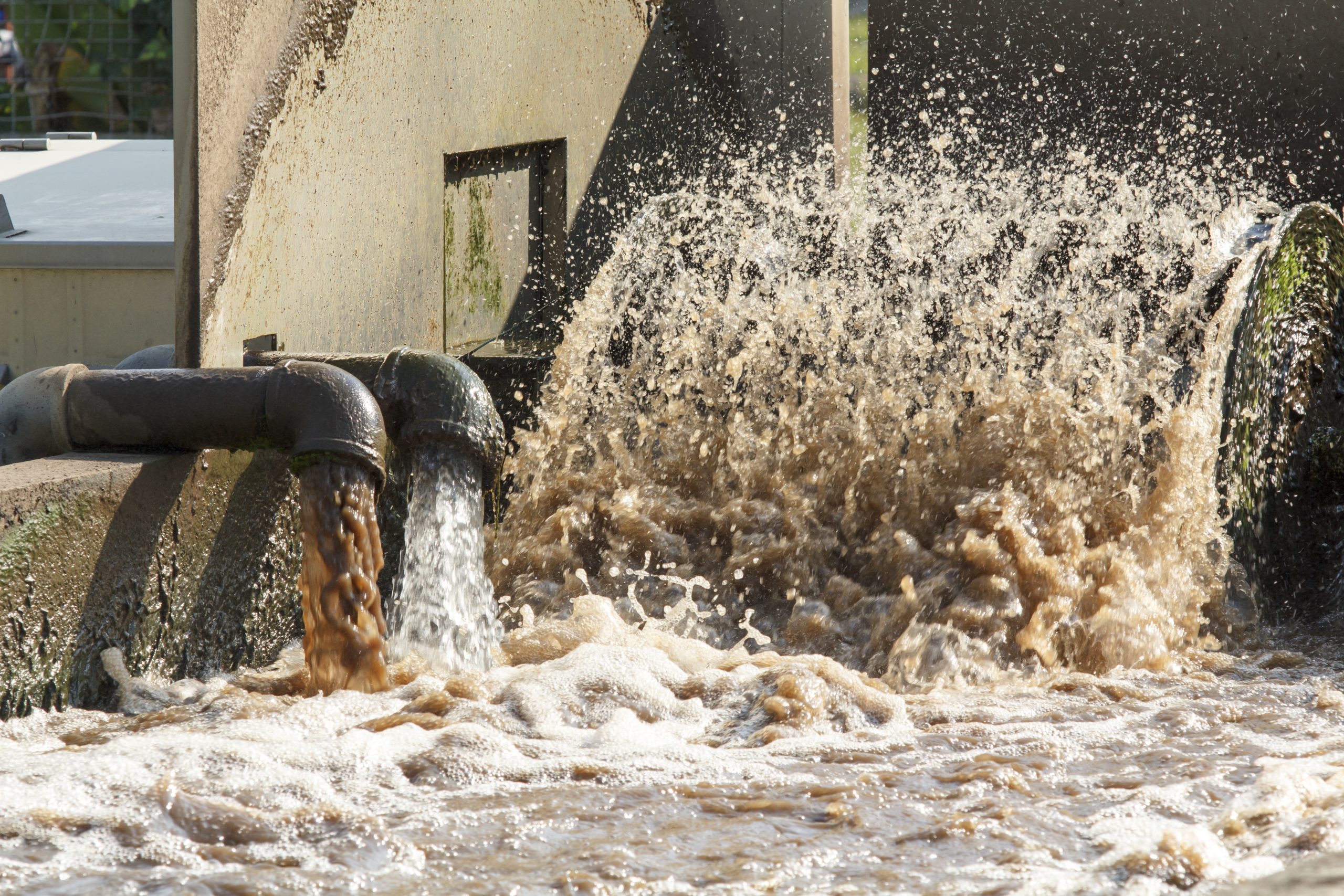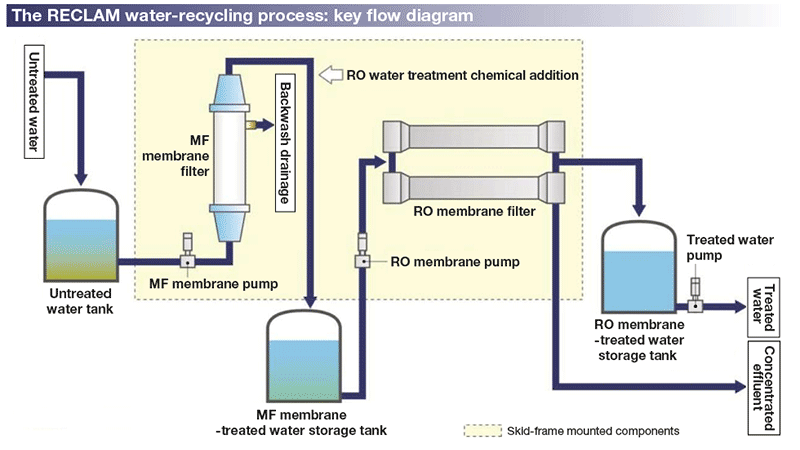Industrial Waste Water Treatment-- Sustainable Solutions for Industrial Water Management
Industrial Waste Water Treatment-- Sustainable Solutions for Industrial Water Management
Blog Article
Challenges and Solutions in Hazardous Waste Water Therapy
The therapy of industrial wastewater presents a multifaceted selection of challenges, varying from rigid regulative conformity to the complexities of price management and technical limitations. The irregularity in waste make-up additionally makes complex the effectiveness of typical treatment techniques, often resulting in escalated functional expenditures.
Regulatory Conformity Difficulties
Just how can commercial centers browse the facility landscape of regulative compliance in wastewater treatment? The governing structure regulating wastewater monitoring is multifaceted, commonly differing by territory and type of market.
To successfully handle these compliance difficulties, facilities must carry out robust monitoring and reporting systems that make certain real-time data collection and analysis. Regular audits and risk analyses can recognize possible conformity spaces, permitting positive modifications in therapy processes. Employee training programs concentrating on governing expertise and best methods are necessary to foster a culture of conformity within the company.
Additionally, engaging with regulative firms can offer useful insights and clarify ambiguous policies. Facilities may additionally gain from seeking advice from ecological professionals who specialize in wastewater treatment conformity, ensuring that they remain informed of evolving guidelines. By taking on these approaches, industrial facilities can not only fulfill compliance needs yet likewise boost their functional effectiveness and environmental stewardship.
Cost and Economic Obstacles
Browsing regulative conformity in wastewater treatment commonly provides considerable monetary difficulties for industrial facilities. The costs related to implementing needed therapy modern technologies, preserving compliance with stringent regulations, and handling operational costs can be discouraging. Lots of companies face high initial resources expenditures for the building and construction or upgrading of wastewater therapy plants, which may strain budgets, especially for little and medium-sized business.
Additionally, recurring operational costs, including chemical, maintenance, and labor inputs, contribute to the monetary burden. The unpredictability of changing power prices and the possible need for extra financial investments to meet progressing policies aggravate these financial pressures. In many situations, the lack of monetary motivations or support from government bodies makes it a lot more difficult for services to justify financial investments in sophisticated therapy systems.
Furthermore, the economic practicality of wastewater treatment services is often examined, specifically for sectors with tight profit margins. Consequently, it is important for commercial centers to check out affordable methods, such as adopting innovative financing choices, engaging in collaborations, and leveraging arising innovations that can help reduce these economic barriers while making sure compliance with environmental standards.

Technological Limitations
Many technological limitations prevent the efficiency of commercial wastewater treatment procedures. One considerable obstacle is the inadequacy of existing treatment innovations to deal with complex impurities.
Additionally, the scalability of therapy technologies postures a difficulty. While some innovative methods, like membrane layer filtering or sophisticated oxidation, show assurance in controlled atmospheres, their execution on a larger scale can be prohibitively expensive and practically challenging. Maintenance and functional complexities even more complicate the adoption of these systems, especially for smaller sized sectors with minimal technological proficiency.
The integration of real-time surveillance technologies likewise stays inadequate in many treatment facilities. Without effective tracking systems, drivers can not properly assess therapy performance or spot prospective failures, bring about inconsistent effluent quality. As a result, attending to these technical limitations with research study and advancement, alongside financial investment in innovative solutions, is important for improving the efficacy of commercial wastewater treatment and making sure regulative conformity. Industrial Waste Water Treatment.
Irregularity in Waste Composition
In the world of commercial wastewater therapy, the irregularity in waste composition presents a powerful difficulty. Industries generate wastewater with diverse features, influenced by variables such as production procedures, basic materials, and operational methods. This diversification makes complex the therapy process, as traditional systems often battle to efficiently deal with the large variety of contaminants existing.
For example, wastewater from food handling might include high degrees of raw material, while effluents from chemical production can consist of hazardous compounds and hefty steels. This variation requires adaptable treatment strategies to make certain compliance with environmental regulations and shield public health. Additionally, fluctuations in waste structure can happen over time, affected by changes in production timetables, upkeep tasks, or the intro of brand-new items.

Ingenious Therapy Solutions
Innovative treatment services are necessary for dealing with Read More Here the intricacies of industrial wastewater management. Conventional techniques frequently fall short in efficiently getting rid of a wide variety of impurities, especially in facilities with diverse effluent streams. Current developments focus on integrating sophisticated modern technologies to enhance treatment effectiveness and sustainability.
One appealing technique is using innovative oxidation processes (AOPs), which utilize effective oxidants to weaken natural contaminants. AOPs, including photocatalysis and ozonation, can considerably decrease toxic materials and boost effluent high quality. In addition, membrane bioreactor (MBR) innovation has gained traction, incorporating biological therapy with membrane layer purification, resulting in top quality effluent and minimized footprint.
Another ingenious service is the implementation of resource recuperation systems. Techniques like anaerobic digestion not only deal with wastewater but additionally create biogas, which can be harnessed as an eco-friendly energy source. Moreover, the adoption of synthetic knowledge and equipment knowing models can maximize therapy processes by predicting variations in wastewater make-up, thereby improving operational effectiveness.
These cutting-edge solutions not only address regulatory conformity but also advertise environmental sustainability, paving the way for an extra effective and resilient industrial ecological community.
Final Thought
Finally, attending to the challenges of commercial wastewater treatment requires a diverse technique that integrates regulative conformity, price monitoring, and technological innovations. Cutting-edge services, such as sophisticated oxidation procedures and membrane layer bioreactor innovation, offer paths to boost treatment effectiveness. In addition, real-time surveillance systems and collaborative engagement with governing companies can advertise sustainable techniques while minimizing financial pressures. A dedication to constant enhancement in treatment methodologies will eventually add to the reliable management of commercial wastewater and environmental management.
The therapy of industrial wastewater presents a diverse range of obstacles, varying from strict governing compliance to the details of cost administration and technological limitations. Industrial Waste Water Treatment.Browsing regulatory conformity in wastewater treatment usually presents substantial monetary difficulties for industrial centers. Dealing with these technological limitations with research and advancement, alongside investment in innovative remedies, is vital for boosting the effectiveness of commercial wastewater therapy and guaranteeing governing compliance
Wastewater treatment centers should visit invest in durable monitoring systems and flexible therapy modern technologies capable of suiting differing influent features.In final thought, dealing with the difficulties of commercial wastewater treatment needs a diverse approach that integrates regulative compliance, cost administration, and technological advancements.
Report this page